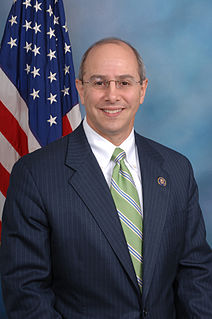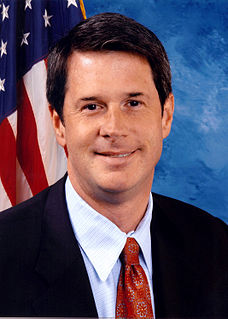Background
Elections in Louisiana—with the exception of U.S. presidential elections—follow a variation of the open primary system. Candidates of any and all parties are listed on one ballot; voters need not limit themselves to the candidates of one party. Unless one candidate takes more than 50% of the vote in the first round, a run-off election is then held between the top two candidates, who may in fact be members of the same party.[2] In this election – the first gubernatorial election held under the state's new open primary law – the first round of voting was held on November 1, 1975.
Although no runoff was needed, because of the way the new election law was written, an unopposed runoff was held on December 13. Edwards received 430,095 votes in it, according to figures recorded by the Louisiana Secretary of State's office. The Republicans did not field a candidate for the election. The law was later rewritten to where the unopposed runoff was not required if a candidate won an outright majority in the primary. This happened in the 1983 election, when Edwards won a third non-consecutive term over Republican incumbent David C. Treen.

Charles William Boustany Jr. is an American politician, physician, and former Congressman from Lafayette, Louisiana, who served as the U.S. Representative for Louisiana's 3rd congressional district from 2005 to 2017. The district, numbered as the 7th District from 2005 to 2013, is located in the southwestern portion of the state and includes Lafayette and Lake Charles. He is a member of the Republican Party.

Clyde Cecil Holloway was an American politician, small business owner, and member of the Republican Party who – at his death – served as one of five members of the Louisiana Public Service Commission. After seven years in office he did not seek reelection to the PSC in the primary election held on November 8, 2016, in conjunction with the presidential election.

The Louisiana gubernatorial election of 2003 was held on November 15, 2003 to elect the Governor of Louisiana. Incumbent Republican Governor Mike Foster was not eligible to run for re-election to a third term because of term limits established by the Louisiana Constitution.

The Louisiana gubernatorial election of 1999 was held on October 23, 1999, incumbent Republican Mike Foster won reelection to a second term as governor of Louisiana.

The Louisiana gubernatorial election of 1995 was held on November 18, 1995 to elect the Governor of Louisiana.

The Louisiana gubernatorial election of 1991 resulted in the election of Edwin Edwards to his fourth non-consecutive term as governor of Louisiana. The election received national and international attention due to the unexpectedly strong showing of David Duke, a former Grand Wizard of the Knights of the Ku Klux Klan, who had ties to other white supremacist and neo-Nazi groups.

The Louisiana gubernatorial election of 1987 was held on October 24, 1987, Democrat Buddy Roemer defeated incumbent Democrat governor Edwin Edwards.
The so-called Louisiana primary is the common term for the Louisiana general election for local, state, and congressional offices. On election day, all candidates for the same office appear together on the ballot, often including several candidates from each major party. The candidate who receives a simple majority is elected. If no candidate wins a simple majority in the first round, there is a runoff one month later between the top two candidates to determine the winner. This system is also used for United States Senate special elections in Mississippi and Texas, and all special elections for partisan offices in Georgia.

The Louisiana gubernatorial election of 1983 resulted in the election of Edwin Edwards as Governor of Louisiana, defeating incumbent David Treen.

The Louisiana gubernatorial election of 1979 resulted in the election of David Treen as the first Republican governor of Louisiana since Reconstruction.

The first round of the Louisiana House election of 2006 were held on Tuesday, November 7, 2006. The terms of all seven Representatives to the United States House of Representatives will expire on January 3, 2007, and will be put up for contest. The winning candidates will serve a two-year term from January 3, 2007 to January 3, 2009. If necessary, a runoff round will be held on December 9, 2006.

Since 1977 state elections in Louisiana have used a unique system similar to the majority-runoff system used in some other jurisdictions, which in Louisiana has become known as a “jungle” primary or an "open" primary, where all the candidates for an office run together in one election. If someone gets a majority, that individual wins outright; otherwise, the top two candidates, irrespective of partisan affiliation, meet in a runoff election. This primary system is used for state, parish, municipal, and Congressional races, but is not used for presidential elections.

The 2008 congressional elections in Louisiana to determine representation for the state of Louisiana in the United States House of Representatives occurred November 4, 2008. Louisiana has seven seats in the House, apportioned according to the 2000 United States Census. Representatives are elected for two-year terms; those elected will serve in the 111th Congress from January 4, 2009 until January 3, 2011. The election coincided with the 2008 U.S. presidential election.

The 2003 United States elections, most of which were held on Tuesday, November 4, were off-year elections in which no members of the Congress were standing for election. However, there were three gubernatorial races, state legislative elections in four states, numerous citizen initiatives, mayoral races in several major cities, and a variety of local offices on the ballot.

The 2004 United States Senate election in Louisiana was held on November 2, 2004. Incumbent Democratic U.S. Senator John Breaux decided to retire after three terms in office. Republican U.S. Representative David Vitter won the jungle primary with 51% of the vote and avoided a runoff, becoming the first ever Republican to be popularly elected to the U.S. Senate from Louisiana.

The Louisiana gubernatorial election of 2011 was held on October 22 with 10 candidates competing in a nonpartisan blanket primary. The incumbent, Bobby Jindal, was elected to a second term as governor of Louisiana. Since he received an outright majority of the vote in the blanket primary, a runoff election that would have occurred on November 19 was unnecessary.

Louisiana's 2011 state elections were held on October 22, 2011, with runoff elections held on November 19. All statewide elected offices were up, as well as all seats in the Louisiana State Legislature.

The Louisiana gubernatorial election of 2015 was held on November 21, 2015, to elect the governor of Louisiana. Incumbent Republican Governor Bobby Jindal was not eligible to run for re-election to a third term because of term limits established by the Louisiana Constitution.

United States gubernatorial elections were held in three states in 2015 as part of the 2015 United States elections. In Kentucky and Mississippi the elections were held on Tuesday, November 3, and in Louisiana, as no candidate received a majority of votes at the primary election on Saturday, October 24, 2015, a runoff election was held on Saturday, November 21. The last regular gubernatorial elections for all three states were in 2011. Democrats won the open seat of term-limited Republican Bobby Jindal in Louisiana, while Republicans reelected incumbent Phil Bryant in Mississippi and picked up the seat of term-limited Democrat Steve Beshear in Kentucky.
Robert Max Ross was a Republican activist and a candidate for numerous statewide and local offices who resided in Mangham in northeastern Louisiana. He was among the earliest advocates for the Republican political movement at a time when no GOP candidate had been elected statewide in more than a century. He ran as one of two candidates in the Republican primaries for governor in 1972 and Louisiana's 5th congressional district seat in 1974. After Louisiana adopted the jungle primary system, Ross qualified again for governor in 1983 and also the United States Senate in 1984. He additionally ran for the Louisiana State Senate as well as mayor of Mangham during other election years.
















